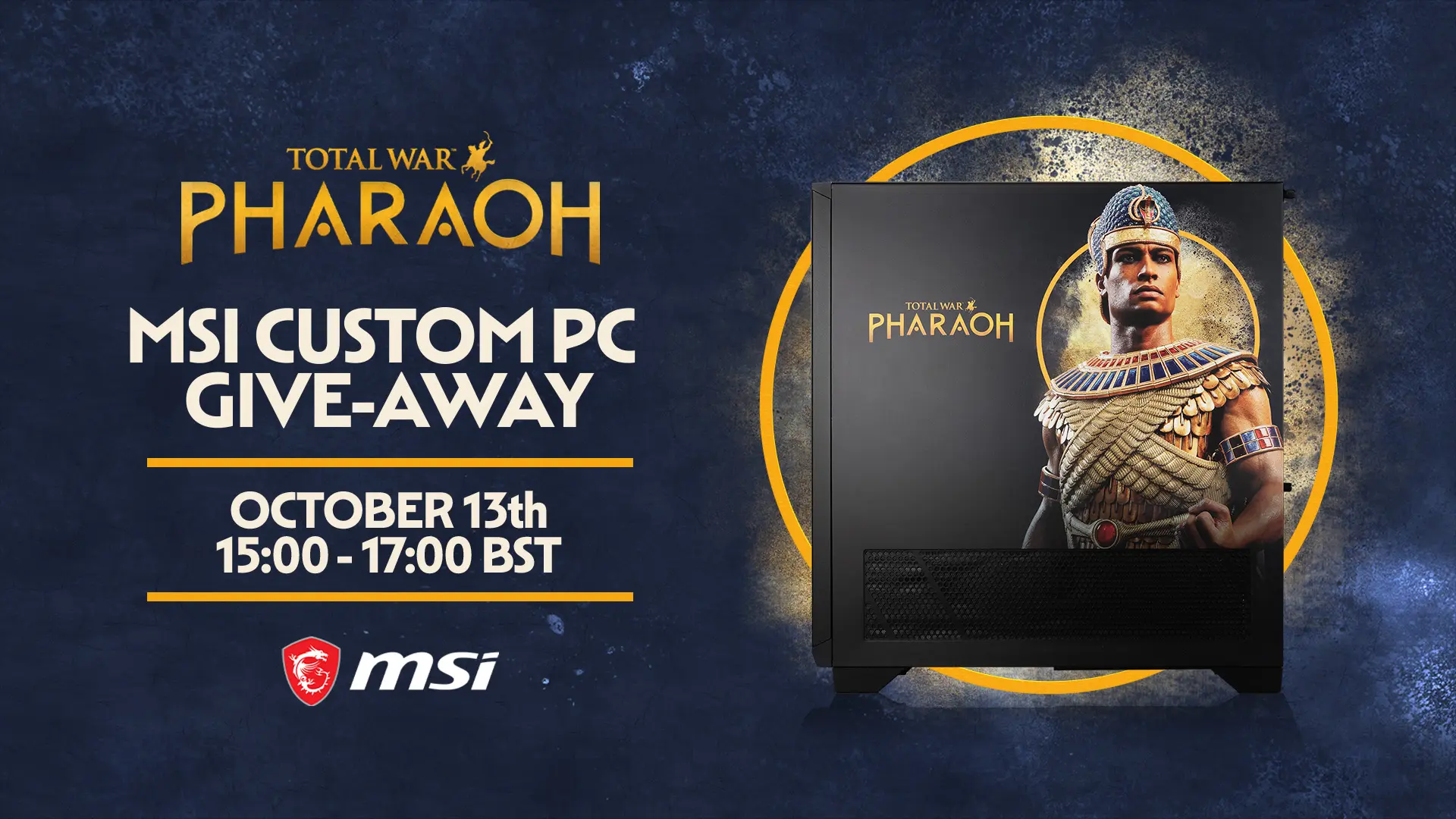
Win a Total War: PHARAOH branded MSI PC!
- Competition
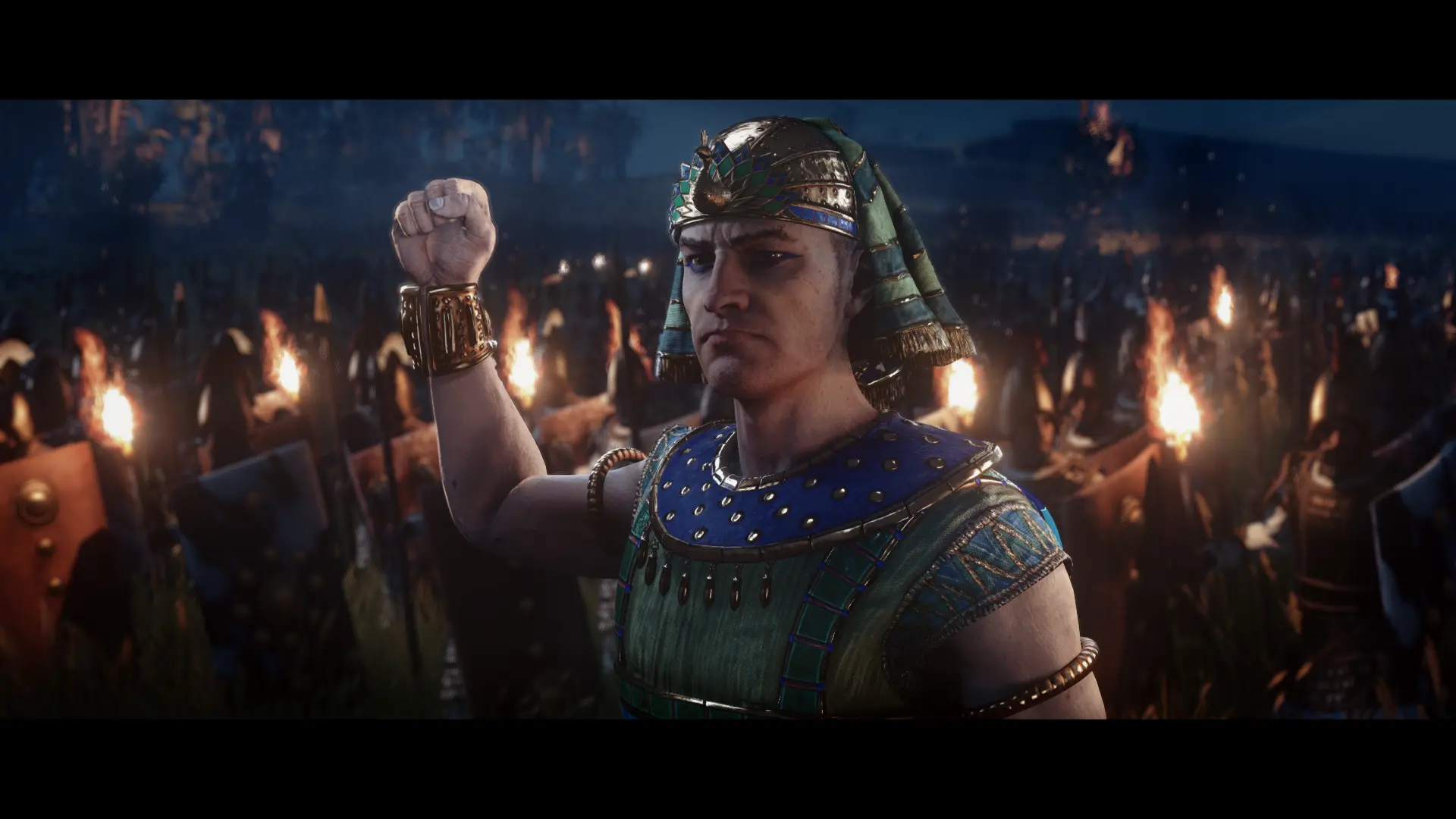
The contrasting figures of Irsu and Bay provide very different visions for the future of Egypt
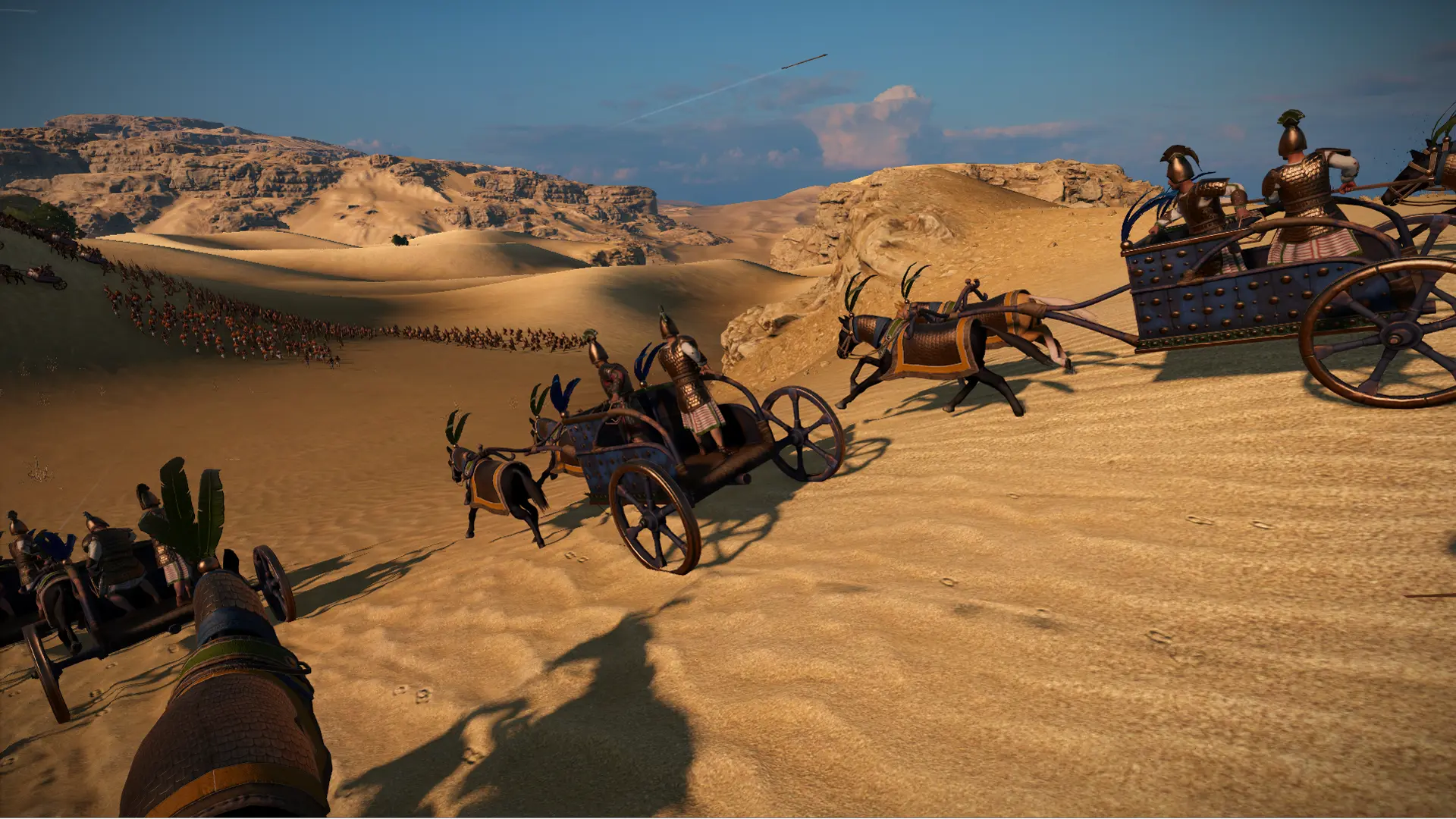
Canaan is a region ravaged by wars waged by bigger empires bordering its north and south. While often somewhat disregarded by Hatti and Egypt, however, victors will be forged from those who do not make the mistake of underestimating it.
Be it the humble diplomat or the great raider, a Canaan leader will rise from the embers of both Hatti and Egypt – be it through subterfuge or by further fanning the flames of war.
Today we take a look at the two playable Canaanite factions in Total War: PHARAOH. Please note that as the game is still in development, some elements may change between now and release.
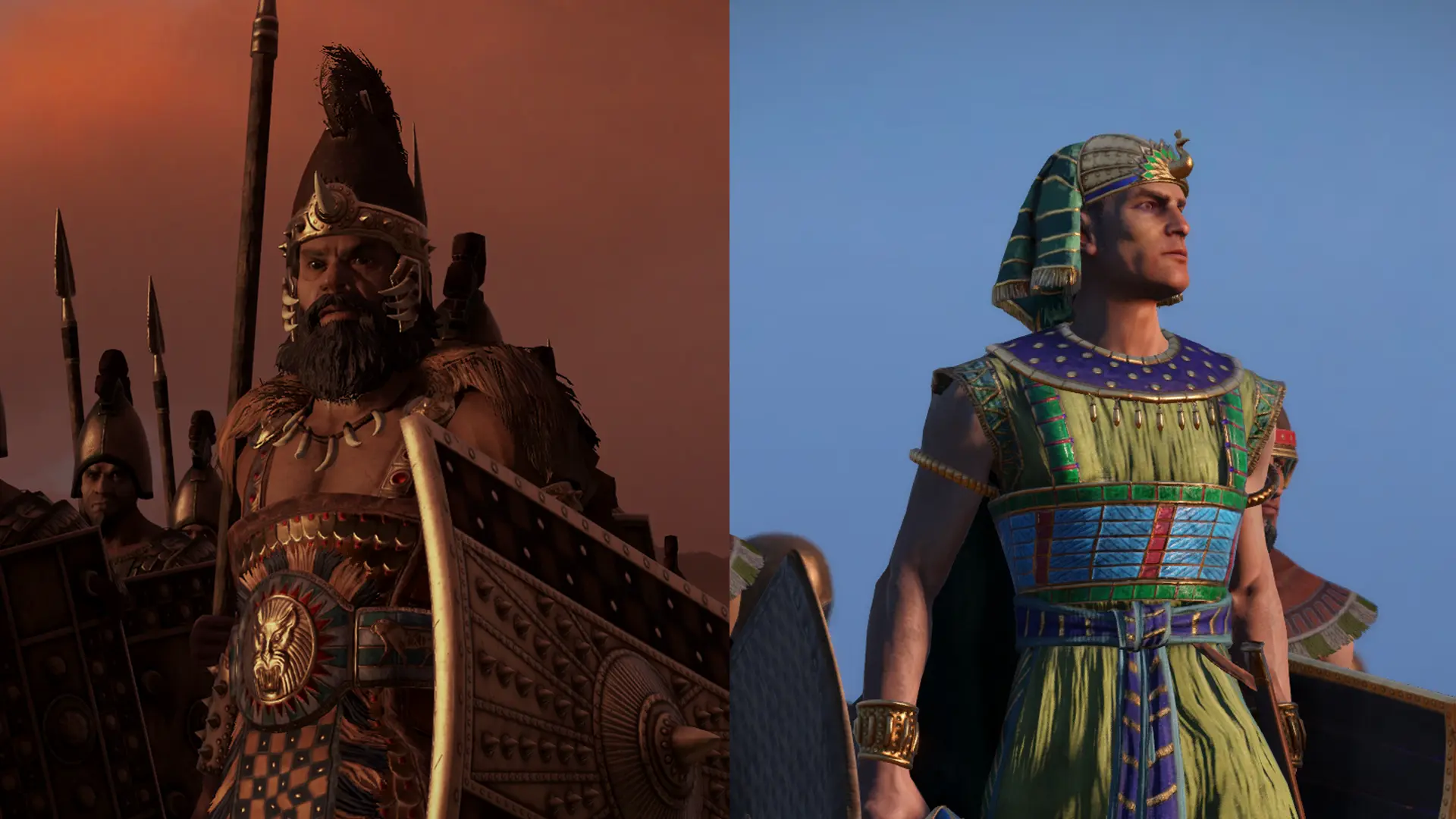
CONTRASTING CHARACTERS
Canaan’s two leaders could hardly be more different from one another.
Starting out in Retjenu, Irsu has no interest in ruling. Instead he yearns only to acquire. Be it resources, money or conflict – if you have something he wants, he will take it. Society’s downfall is of no concern to him - he will continue to raze and loot regardless. A prize fighter who brings heavyweight champions to their knees, to most his arrival heralds an oncoming apocalypse.
Over in Fenkhu, the diplomat, Bay, is an entirely different proposition. Enamoured by Egyptian high society and already in decent standing with Merneptah, Bay has his eyes on the courts where he intends to spread his control and influence throughout society. It is not the acquisition of power that drives Bay but instead the chance to use it for good, be that through manipulating a puppet Pharaoh or even taking the throne himself, should circumstances so conspire.
Where Irsu seeks chaos, Bay seeks to stem anarchy’s tide.
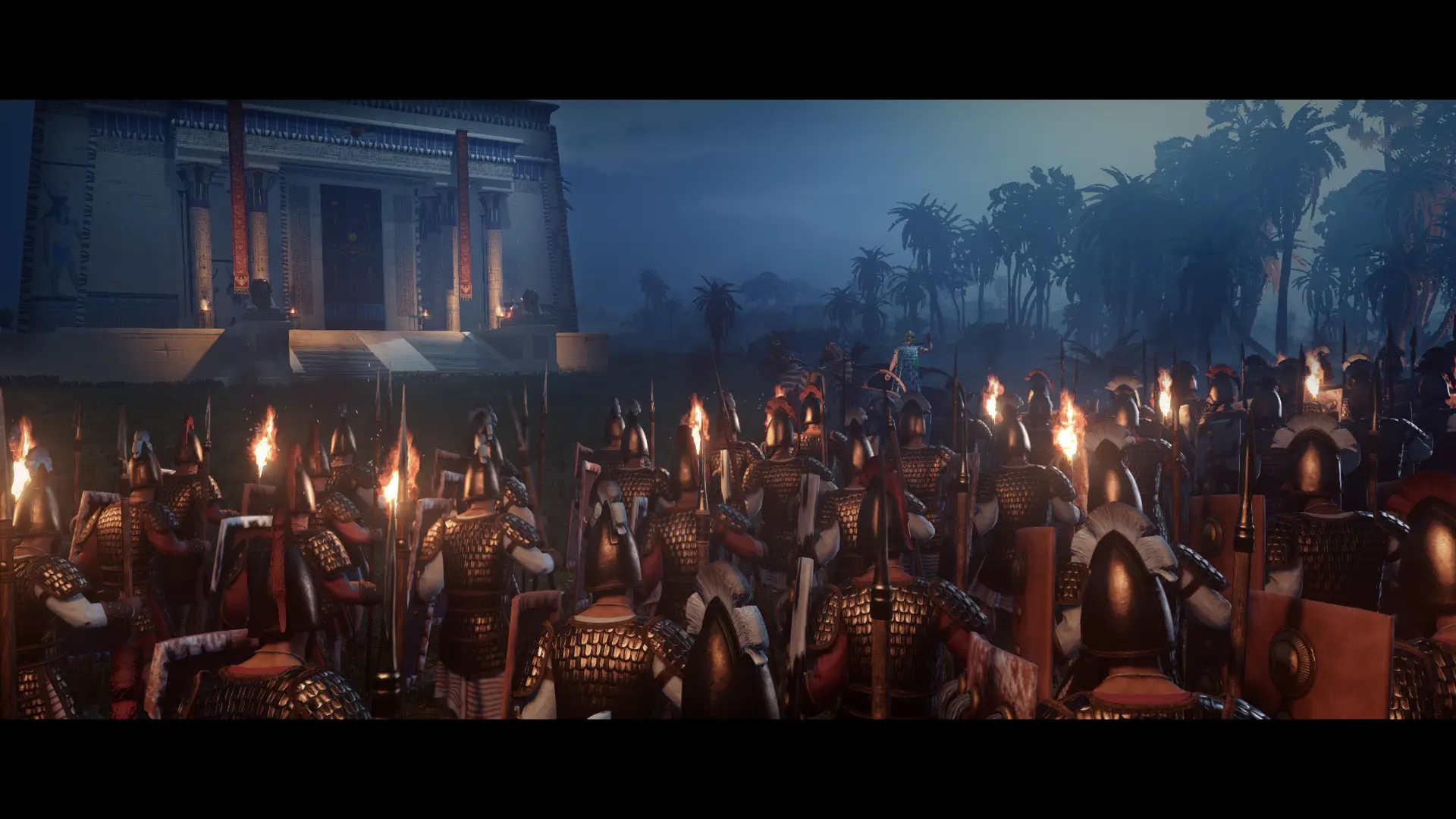
CONTRASTING PLAYSTYLES
Bay’s approach is unique in Total War: PHARAOH. As one who thrives not on the battlefield, Bay instead prefers to operate in society’s shadows. Swords and spears are not his weapons – he instead prefers influence, diplomatic relations and subterfuge.
Bay utilises the vast amount of resources gained from his buildings to ensure he has friends in all the right places. But while he may shower gifts upon his admirers at first, the time will inevitably come when he stops giving and starts to take…
His unique buildings bolster legitimacy, influence and resource production. The lighter side of Bay’s façade can be seen in the Singing Competition and the Chief Scribe’s Headquarters, which increase happiness, influence and legitimacy to the throne. Meanwhile, Bay's pragmatism is displayed in the Regional Fair, which increases production rates. Bay gains legitimacy through all manner of actions, be that plotting with factions or holding a position within the courts. All in all, he is a formidable political opponent.
Irsu, meanwhile, is a far blunter instrument. Any power he wields is swung fiercely, leaving opponents in a smouldering rubble. His interest isn’t in building empires, but in tearing them down. He cares little for notions such as ‘economy’, ‘happiness’ and ‘diplomacy’. If something furthers his cause, he takes it. If not, it’s cast aside.
Irsu’s unique buildings exemplify this. The Forced Labour Camps hugely improve production rates and workforce growth but do not, as one might imagine, do much for happiness. Whatever happiness he himself experiences is found in gold, and his Gold Tally Quarters bolster influence, happiness, production and even legitimacy. Irsu’s War Camp, meanwhile, increases recruitment slots and ranks in a region.
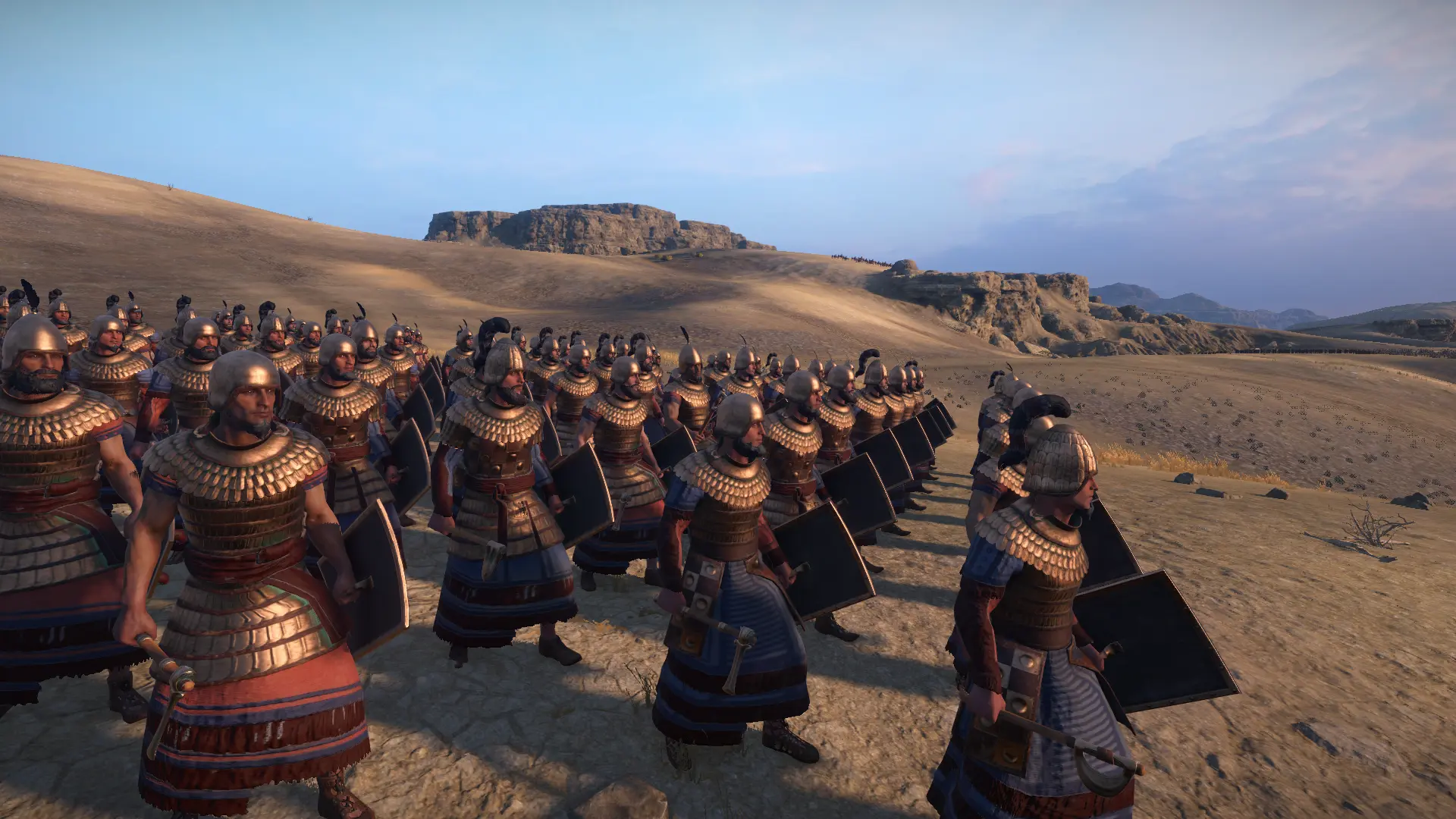
CONTRASTING MILITARIES
Specialising in ambush tactics, nearly all of Bay’s forces boast the Ambusher trait, meaning they’re difficult to spot in even the most open of terrain. Not that spotting them makes a huge difference, as they’re very capable of disabling the majority of an army’s defensive and offensive capabilities. Facing chariots? Javelins can potentially break their wheels, greatly affecting their speed. Shields and armour? Bay’s armies strike fast hand-to-hand with surgical precision.
However, if subterfuge is not for you then the unique forces of Irsu just might be.
Irsu’s armies are forged in his image, adorned in the heaviest armour that shrugs off many attacks from more lightly armoured units. He even utilises heavy skirmisher chariots that can decimate missile forces with ease. Where lighter units are employed their purpose is simple – be expendable and harass the enemy until the big guns arrive.
His forces can be reckless in combat, but their heavy armour affords them a certain casual obliqueness. Forget honour and strategy. This is war, and Irsu’s forces are here for a fight.
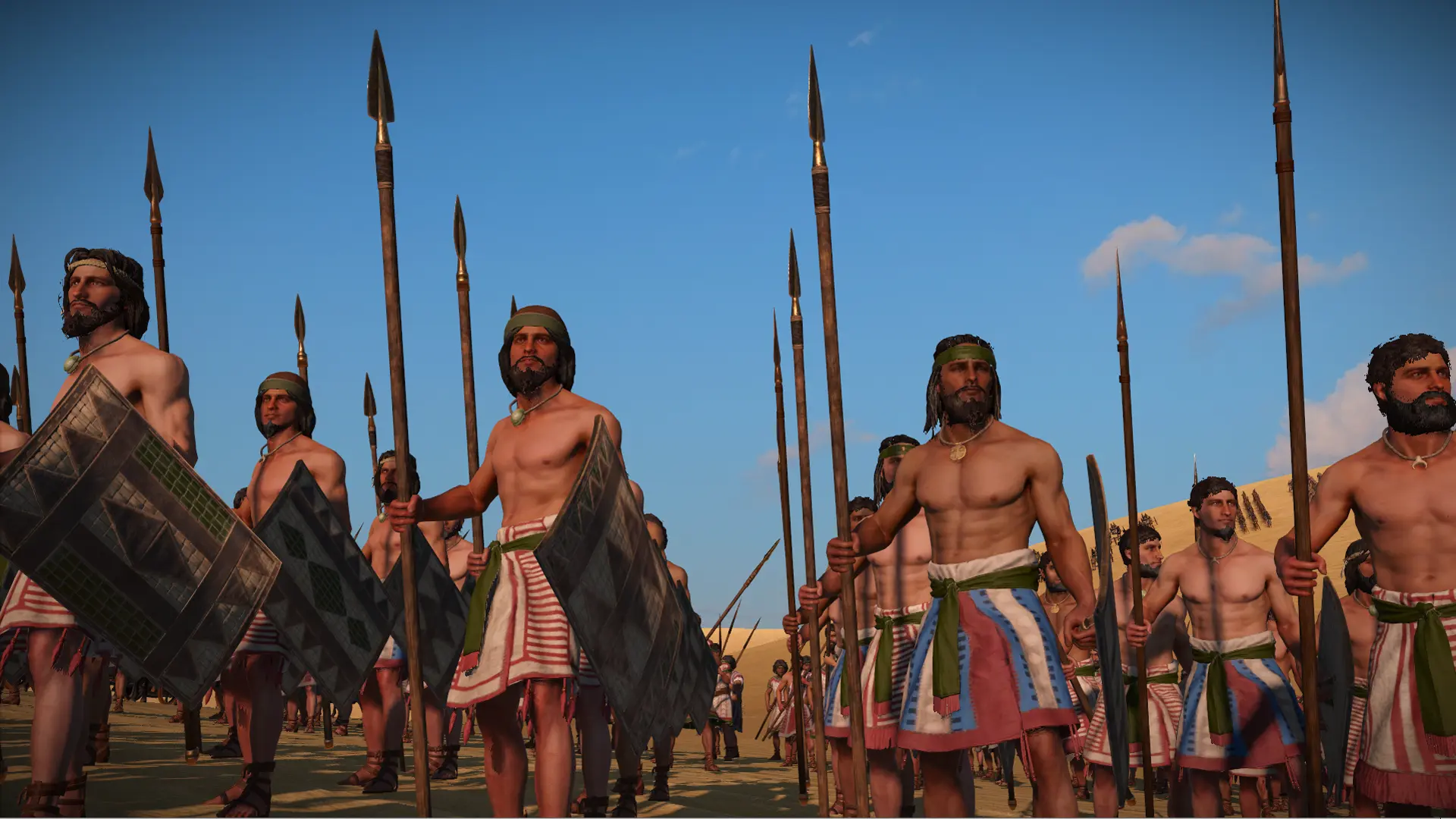
FEARSOME MILITIAS
Canaanite forces must be adaptable, facing danger both from the speedy units of the Egyptians and the heavy armour of the Hittites.
In Bay’s starting location in Fenkhu, we find the native Fenkhu and Yamhad forces. These span the entirety of the armour spectrum – lightly armoured units capable of decent ambush tactics, plus medium and heavy armoured units capable at holding out against chariot charges from Egyptian forces.
Meanwhile, Irsu starts with access to the Sinai and Retjenu militia also utilised by Ramesses. While the forces may be familiar, under Irsu’s command you’ll be utilising them for different reasons - chiefly their range and speed. The Sinai and Retjenu forces can pick up the slack where Irsu’s own armies may falter, although do not confuse Irsu for a slouch…
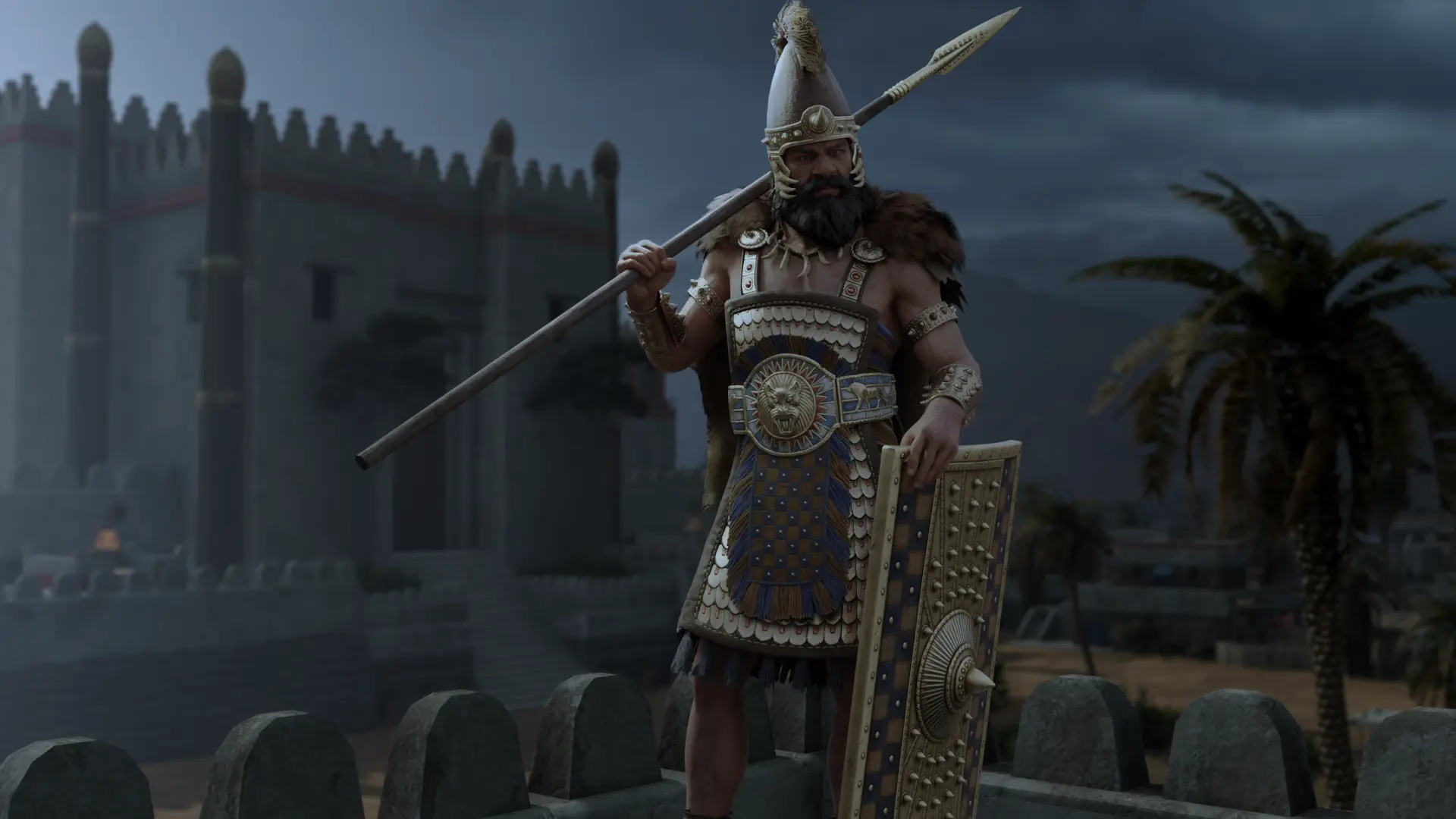
UNTIL NEXT TIME
We'll be back soon with more insight into the excitement coming your way in Total War: PHARAOH. In the mean time, do check out our deep dive into the game Egyptian factions.